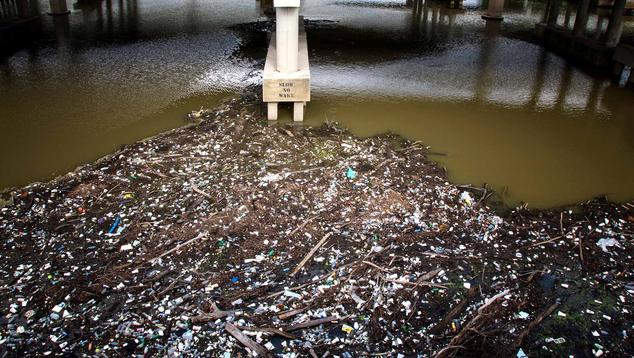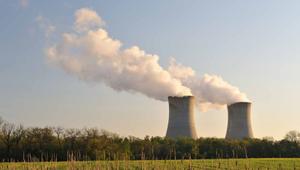WASHINGTON, D.C. -- Substantial proportions of Americans are concerned about exposure to four types of environmental pollution or contamination in their communities. Black Americans, however, are more likely than other racial or ethnic groups to express concerns about all four threats, while White Americans are the least concerned.
Over half of Black adults (53%) say they are “very” or “fairly concerned” about exposure to air pollution where they live, compared with 46% of Hispanic adults and 35% of White adults.
The percentage of Black Americans who report being very or fairly concerned about drinking water contamination (46%) is 15 percentage points higher than the national average and 20 points higher than White Americans.
Black adults are also most likely to report concerns about exposure to land or soil contamination (42%) and exposure to toxic building materials (39%).
An Urban-Rural Divide in Pollution Concerns
A recent survey finds that Americans living in urban areas are more likely to express concerns about exposure to local environmental threats than those living in other areas. On average, levels of concern are approximately 20 points higher among Americans in urban areas compared with those in suburbs and rural areas and about 10 points higher than those in small towns.
However, concerns about air pollution show the largest urban-rural gap, with 56% of Americans living in urban areas reporting that they are very or fairly concerned about being exposed to polluted air where they live -- more than double the rate among residents of rural communities (27%).
The racial differences in concerns about exposure to environmental threats are not merely because racial/ethnic minority populations are more likely to live in urban areas. While concerns about exposure to environmental pollution and contamination are similar by race/ethnicity among Americans living in urban centers, they diverge among Americans of different racial/ethnic backgrounds living in towns, suburbs and rural areas. Among those living outside of urban areas, Black Americans are more concerned than White Americans about environmental threats.
Majorities of all racial/ethnic groups living in urban communities report being very or fairly concerned about exposure to air pollution where they live, ranging from 55% to 59%. However, among those living in suburbs, a majority of Black adults (54%) and about half of Hispanic adults (49%) say they are concerned about exposure to air pollution, compared with a third of White adults (33%).
A majority of Black Americans living in towns (55%) also report high levels of concern about exposure to air pollution where they live, 15 points higher than White Americans and 13 points higher than Hispanic Americans living in towns. In rural areas, Black and Hispanic adults are more than twice as likely as White adults to say they are very or fairly concerned about air pollution.
Similar patterns are evident for perceptions of drinking water contamination, land and soil contamination, and exposure to toxic building materials. Figures for additional measures among racial groups by urbanicity are available at the bottom of this article.
Escaping Environmental Pollution and Contamination
Many sources of environmental pollution and contamination involve relatively consistent patterns of chronic exposure, such as daily breathing of smoggy air or living in a dwelling with lead paint or asbestos. But certain events can trigger higher levels of exposure. Industrial accidents -- such as chemical spills or radiation leaks -- or contamination of water supply systems can cause acute crises.
When asked about four types of acute environmental crises (water boil advisories, chemical spills, radiation leaks and failed residence safety inspections), one-third of Black Americans (34%) report having experienced one or more such events in the past five years, compared with 28% of both Hispanic Americans and White Americans. Water boil advisories are the most common pollution crisis experienced by Americans in the past five years, reported by 28% of Black Americans and 23% of both Hispanic and White Americans.
Black Americans (9%) are also about twice as likely as White Americans (4%) to report having had to relocate temporarily due to harmful pollution or contamination of their environment in the past 12 months.
Though Black and Hispanic Americans report greater worry about environmental threats than White Americans do, they are less likely to say they would be able to move to avert possible environmental threats. Over half of Black (52%) and Hispanic Americans (55%) say they could not afford to relocate, either permanently or temporarily, in the next 12 months if harmful pollution or environmental contamination occurred in their local area. Forty-five percent of White Americans report the same barrier to relocating.
Implications
The latest findings from the Gallup Center on Black Voices indicate that environmental pollution and contamination are displacing a substantial number of Black Americans. Based on their reports, in the past 12 months alone, approximately 4 million Black Americans have had to relocate temporarily due to harmful pollution or contamination, and another 2 million have had to move permanently.
The Environmental Protection Agency has acknowledged that, due to historical conditions such as segregation and redlining, Black Americans are more likely to be exposed to harmful, polluted or contaminated environments. Organizations such as the Centers for Disease Control and Prevention (CDC) and the American Lung Association publicly recognize the role of racial/ethnic disparities in exposure to environmental pollution and hazards as an underlying cause of numerous health disparities. They cite evidence that inequalities in exposure are linked to higher rates of chronic diseases and mortality among racial/ethnic minorities.
The elevated concerns reported by Black and Hispanic Americans are founded on real, ongoing health risks in the U.S.
To stay up to date with the latest Gallup News insights and updates, follow us on X.
Learn more about how the Gallup Panel works.




